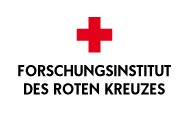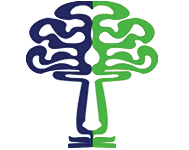Projektkonsortium
Coordinator
 |
Forschungsinstitut des Roten Kreuzes,- FRK Projektteam: Mag. Barbara Kuss - (Gesamtkoordination) (Tel.+43 1 79580 - 5423) |
Gesamtkoordination und Umsetzung des nationalen Parts für Österreich: Forschungsinstituts des Roten Kreuzes (FRK)
Organisation:
Das Forschungsinstitut des Roten Kreuzes (FRK) ist ein außeruniversitäres Forschungsinstitut in der Rotkreuz-Gemeinschaft
- organisiert als gemeinnütziger Verein
- den Grundsätzen des Roten Kreuzes verpflichtet
- mit renommiertem wissenschaftlichem Beirat und
- einer eigenen Ethikkommission.
Seit mehr als 10 Jahren führt das FRK Projekte und Studien im Rahmen von nationalen und Europäischen Programmen sowie im Auftrag von Unternehmen durch und ist dabei sowohl als Projektpartner für die Umsetzung nationaler Forschungs- und Entwicklungsarbeiten in Österreich zuständig als auch als Gesamtkoordinator tätig. Das FRK arbeitet praxis- und anwendungsorientiert im interdisziplinären Team und nach anerkannten Projektmanagement Methoden. Forschungsarbeiten werden nach letzten wissenschaftlichen Standards und unter Einbezug aller qualitativen und quantitativen Methoden der empirischen Sozialforschung durchgeführt.
Forschungsschwerpunkte:
- Arbeitsmarkt, Beschäftigung und Freiwilligkeit
- Gesundheitsförderung und Prävention
- Pflege und Betreuung
- Rettung, Notfallversorgung und Sicherheit
Rolle im Konsortium:
Das FRK hat das Projekt „New View. Changing Methods in Teaching Migrants“ entwickelt, den Antrag bei der Europäischen Kommission eingereicht und ist nun sowohl für die Gesamtkoordination als auch für die Durchführung des nationalen Teils für Österreich verantwortlich.
Partners
 |
Diakonisches Werk Berlin-Brandenburg-schlesische Oberlausitz e.V. - DWBO |
The Diakonisches Werk Berlin-Brandenburg-schlesische Oberlausitz (DWBO) is recognised as one of the leading social welfare associations NGO/NPO) and has its headquarters at Paulsenstr. 55 in the Berlin district of Steglitz. It is an independent regional association of the Diakonisches Werk of the Protestant Church of Germany (DWEKD), serving the federal states of Brandenburg and Berlin and the region schlesische Oberlausitz.
Diakonie is an expression of the life and character of the church. The constituent members of the Diakonisches Werk Berlin-Brandenburg-schlesische Oberlausitz (DWBO) are:
- Evangelische Kirche in Berlin-Brandenburg-schlesische Oberlausitz (EKBO) (Protestant Church)
- Bund Evangelisch-Freikirchlicher Gemeinden in Deutschland (Evangelical Free Churches)
- Evangelisch-methodistische Kirche (Methodist Church)
- Europäisch-Festländische Brüder-Unität (Herrnhuter Brüdergemeine) (European- Continental Church/Herrnhut Tradition)
- Heilsarmee in Deutschland (Salvation Army)
- Selbständige Ev.-Lutherische Kirche (Independant Lutheran Church)
The Diakonisches Werk Berlin-Brandenburg-schlesische Oberlausitz (DWBO) is subject to the statutes of the participating churches. Its task is to help our neighbour in physical, emotional and social need.
The DWBO is an umbrella association for 430 legally independent social welfare organisations and foundations (about 225 of them in Berlin) from the established Protestant church and the free churches, and it represents their interests within the League of the Leading Social Welfare Associations and in dealings with ministries, Senate departments, funding agencies, local communities, interest groups etc.
The DWBO takes managing responsibility for the development of Protestant aid organisation Bread for the world within the federal states of Berlin and Brandenburg and the region schlesische Oberlausitz. Annual donations in the region total approximately 2.5 million Euro. Aid is given to projects in Africa, Asia and Latin America on the principle of “helping people to help themselves”.
The origins of the Diakonisches Werk go back to the “Central Committee for Inner Mission in the German Protestant Church” founded in 1848 by the Protestant theologian, Johann Hinrich Wichern. In the same year, the “Protestant Association for Church Purposes” was founded in Berlin, and in 1920 it was merged with the “Berlin Central Association for Inner Mission”. This association then became the “Central Association of the Berlin Inner Mission” in 1935. In 1945 the “Aid Association of the Protestant Church in Germany” was also founded as a post-war aid organisation. Although the partition of Berlin and the construction of the Berlin Wall made cooperation between the offices in east and west far more difficult, the two organisations initially retained their respective legal form.
It was only in 1964 that the aid association and Inner Mission in West Berlin merged to form the Social Welfare Association (“Diakonisches Werk”, western region of the Protestant church in Berlin-Brandenburg). In East Berlin the two organisations merged in 1969 under the name “Inner Mission and Aid Association of the Protestant Church in Berlin-Brandenburg” (eastern region of the Protestant church in Berlin-Brandenburg) with its headquarters at Schönhauser Allee 141 in the district of Prenzlauer Berg.
In the course of German reunification, the western and eastern associations merged on 20.11.1990 to form the Diakonisches Werk Berlin-Brandenburg registered society.
In 2005 Diakonisches Werk Berlin-Brandenburg and Diakonisches Werk der schlesischen Oberlausitz merged to establish the new Diakonisches Werk Berlin-Brandenburg-schlesische Oberlausitz (DWBO).
The headquarters (extension, new building, renovation of the substance of the old building), the House of Diakonie at Paulsenstr. 55/56 in Berlin-Steglitz was dedicated in 1993.
52.000 employed staff - 1.270 establishments:
For its social and charitable tasks the Diakonie maintains more than 1.270 stationary, semi-open and open establishments with about 52.000 staff members (19.500 of them in the federal state of Brandenburg) and numerous volunteers. These establishments include for example old people’s homes and residences, training establishments, establishments for the handicapped, educational assistance establishments, homes, convalescence homes and guest houses, day nurseries (kindergarten), hospitals and clinics, advice centres incl. health care centres, day care centres and regional Diakonisches Werk-associations.
|
mhtconsult - mht |
mhtconsult is a knowledge-based firm of management consultants, whose chief objective focuses on promoting human diversity in the workplace. The firm offers special skills within the following core areas:
- Integration and social capital, cultural analyses, ethnic equality and diversity strategies.
- Labour market analyses, education, competence development and clarifica-tion.
- Organisations social engagement and retaining strategies.
mhtconsult covers a wide range of consultancy services, whose cornerstones are:
- Evaluation, elucidation and research-based investigations.
- Tools and concept development.
- Project management and implementation.
- Courses and procedure consultation.
Our references within ethnic integration, labour market conditions, competence clarification and social engagement, number to date approximately 100 assignment and project titles, which are to a large extent documented within larger reports, directories and tool boxes.
Our distinctive label is holistic information within the assignment solution. We analyse the development requirements of workplaces, organisations and amongst the unemployed and employed – and actively contribute with practical assistance and coaching, where concrete development processes are set in action. In this way, we help to build bridges between knowledge, development, teaching and practice.
As a knowledge and development organisation we place the demands for quality foremost and emphasise the need to keep up to date with the latest results and development ex-perience within the core areas. We also contribute to the relevant debate with develop-ment results, new organisational tools and concrete recommendations from evaluations and analyses.
Our label of quality is client-tailored model solutions. In both lesser tasks and larger devel-opment projects, we work on individual solutions. For us, the clear demand for quality re-quires that the services must be further developed and adapted so that they meet the needs of each individual case. Therefore, we prepare a thorough goal- orientated project description for each job, which enters into a close dialogue with the individual client on the execution, design and method, timescale, result mediation, price-setting, delivery guaran-tee and quality control of the job. When we report back, both the results and the conclu-sions are always followed up with concrete recommendations and suggestions for further action. We operate both at home and abroad and have carried out consultancy assign-ments for, amongst others:
- The Danish Ministry of Refugee, Immigration and Integration Affairs
- The Danish Ministry of Finance/ Personnel Administration and other govern-mental authorities
- The Danish Governmental Centre for Competence and Quality Development
- The Danish Ministry of Employment, the Committee for Employment, the Em-ployment Council, regional employment offices and the Secretariat for the Sound Region
- The Danish Ministry of Education and the Committee for Further Education
- The Danish Ministry of Economic and Business Affairs and the National Agency for Enterprise and Construction
- Danish regions, County Councils,the National Association of Local Authori-ties, the Coordination Committee / Employment Council
- Employee and Employer Organisations –The Danish Confederation of Trade Unions and other related organisations, the Health Confederation etc.
- Education institutions, language centres and the Adult Vocational Training Council
- The Trade Union Competence Centre
- The Trade Unions´ Information Centre for Integration
- The Academy of Migration Studies
- Business Associations and Business Service Organisations
- The Regional Business Network
- The European Community´s Social Fund, Equal, the Leonardo Programme, together with Nordic and European governmental authorities and councils
- The Norwegian Organisation “Diversity in the Workplace” etc.
| EWORX S.A. - EWX 66 Jean Moreas Street, 15231 Halandri, Athens, GREECE Tel.: +30 210 6148380 Tilia Boussios - Senior Consultant |
EWORX S.A. ist Spezialist im Bereich IKT und bietet IKT Consulting und Software Entwicklung an. Die Firma mit Hauptsitz in Athen wurde 2001 gegründet und beschäftigt über 20 hoch qualifizierte Professionisten, die multidisziplinäres Wissen und Erfahrung in Consulting, Technologien, Projekt Management, Marketing, Inhaltsaufbereitung und Design aufweisen.
EWORX S.A. hat viele Jahre Erfahrung in EU-Projektarbeit und ist im Projekt New View für „Dissemination“ zuständig; dies inkludiert auch Entwicklung, Design und Technische Wartung der Projektwebsite.
 |
queraum. kultur- und sozialforschung - queraum |
queraum. kultur- & sozialforschung ist eine private Forschungseinrichtung und wurde 2004 als wissenschaftliche OEG gegründet.
Die Praxisorientierung der wissenschaftlichen Arbeit ist uns ein besonderes Anliegen. Wir verstehen uns als PartnerInnen bei der erfolgreichen Planung, Umsetzung und Weiterentwicklung von Konzepten, Projekten und Dienstleistungen.
Wir verfügen über langjährige Erfahrung in der Koordination, Evaluation und Begleitforschung von (EU-)Projekten. Darüberhinaus unterstützen wir Sie bei der Konzeption und Entwicklung von Projektanträgen für nationale und europäische Förderprogramme.
Die inhaltlichen Schwerpunkte unserer Arbeit reichen von der Integration benachteiligter Personengruppen, der Gender-Thematik über die Gesundheitsförderung und Qualitätssicherung und -entwicklung im Bereich der sozialen Dienste bis zur sozialen Verantwortung von Unternehmen.
Unser Team setzt sich aus SozialwissenschafterInnen zusammen, die sich neben der fachlichen Qualifikation auch durch soziale Kompetenz auszeichnen.
 |
Institute for Basic and Continuing Education of Health Workers - ETI |
The Institute for Basic and Continuing Education of Health Workers (ETI) – as the background institution of the Ministry of Health - has been playing a leading role in Hungary in the field of health education, continuing education and education development since its establishment in 1962. The institute’s main responsibilities are nursing and health education, elaborating new training forms, requirement systems and educational programmes, educational services to students, health professionals and schools. The ETI is responsible for the coordination of the continuing education system for health workers. It organises professional exams, contests and conferences, publishes textbooks and an informational journal. The Institute tasks are all related to health care.
The Institute has also virtual information center(s), the www.etinet.hu, the www.etiped.hu and the www.etigazd.hu, and an e-learning institution --the ILIAS open source e-learning system.
